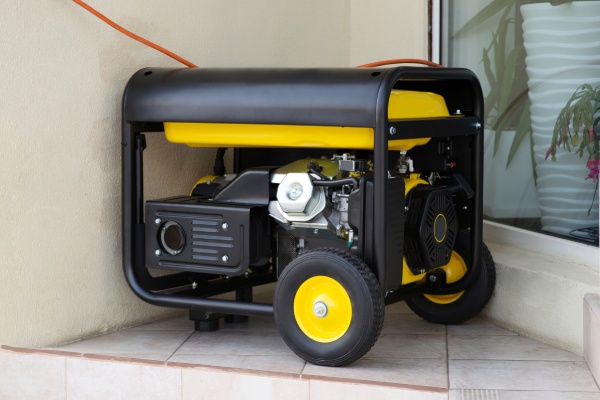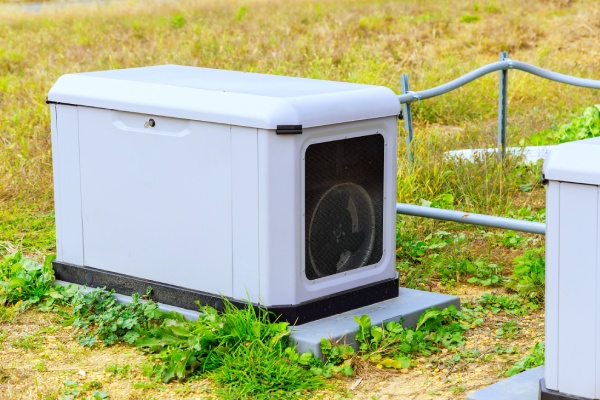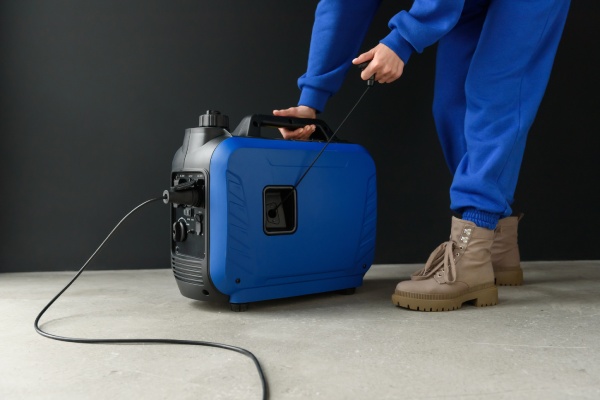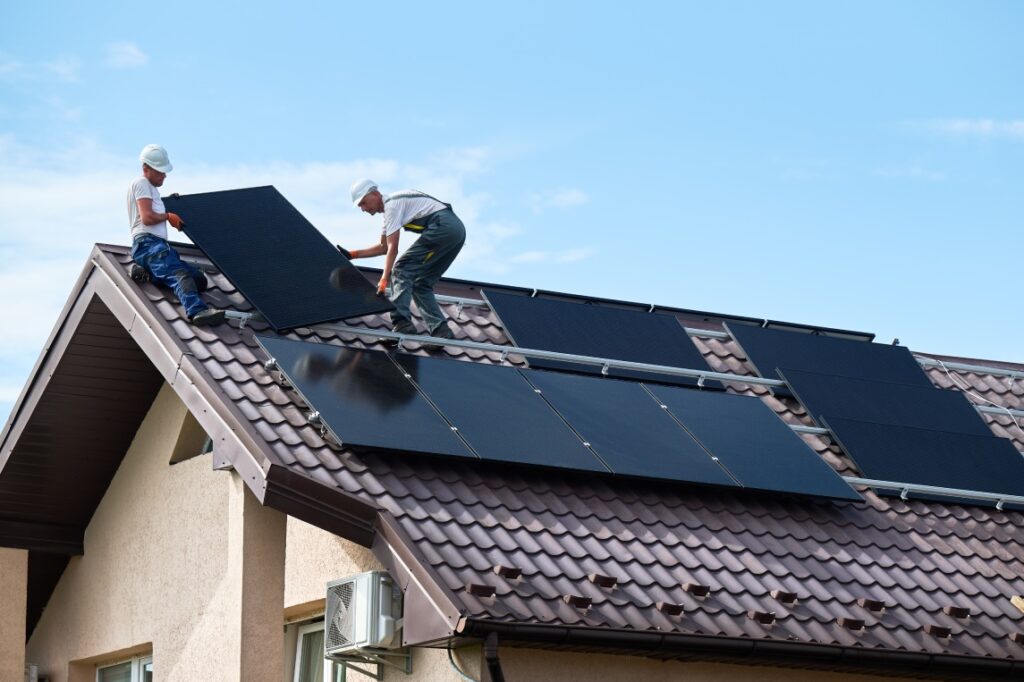In McAllen, Texas, where power outages from weather or grid failures are common, a reliable home generator is a must. Keeping your air conditioning running during a heatwave or protecting your home’s systems during a blackout, the right generator brings peace of mind.
In this guide, we’ll walk through the key considerations for choosing the perfect generator for your home, share home generator installation tips, and offer practical advice for maintaining and operating your unit efficiently.
Understanding Your Options: Portable vs. Standby Generators
When selecting a generator, your first decision is whether to go with a portable or a standby generator. Both have their pros and cons, and the choice depends on your power needs, budget, and lifestyle.
Portable Generators
These are gasoline-powered, mobile units that you can move around as needed. They are typically used for temporary power needs, making them ideal for short outages or for powering specific appliances. Portable generators are budget-friendly and versatile, but they do require manual setup and monitoring during an outage. You’ll also need to store fuel safely, since gasoline degrades over time.
Standby Generators
If you want peace of mind during prolonged outages, a standby generator is a better option. These units are permanently installed outside your home and automatically kick in when the power goes out. They run on natural gas or propane, so you won’t have to worry about refueling. While more expensive upfront, standby generators provide consistent, hassle-free power during emergencies and can keep your entire home running smoothly.
In McAllen, where summer temperatures can soar, standby generators are a popular choice, especially for those who prioritize keeping their air conditioning and other essential systems running without interruption.
Sizing It Right: Calculating Your Power Needs

One of the most important steps in selecting a generator is making sure it’s the right size for your home. Generators are measured by wattage, so you’ll need to calculate how much power your appliances will require during an outage. This includes everything from your refrigerator to air conditioning units, lights, and perhaps even your home security system.
Running vs. Starting Watts
Some appliances, especially those with motors (like refrigerators or HVAC systems), require more power to start than they do to run. This is referred to as starting watts versus running watts. Make sure your generator can handle both the peak starting power and the continuous running power of your devices.
Adding a Safety Buffer
It’s always a good idea to add a 10-20% buffer to your total wattage needs to prevent your generator from running at full capacity all the time. This will extend its lifespan and allow it to handle any unexpected loads that come up.
For instance, if your home requires 6,000 watts to run essential appliances, opting for a generator with an 8,000-watt capacity will provide a buffer for additional appliances or surges.
Fueling Your Generator: Choosing the Best Option
Your generator’s fuel source is another key consideration. The most common fuel types for home generators are gasoline, natural gas, propane, and diesel.
Gasoline
This is the go-to fuel for portable generators. It’s widely available but less efficient and has a shorter shelf life compared to other fuels. If you go this route, make sure to store gasoline safely and rotate your supply to keep it fresh.
Natural Gas
A popular choice for standby generators, natural gas offers the convenience of a continuous supply via your home’s gas line. It’s a clean-burning option, meaning fewer emissions, and you won’t need to worry about refueling during an extended outage.
Propane
Known for burning cleaner than gasoline and diesel, propane can be stored for long periods, making it a reliable option. However, you’ll need a separate propane tank, which requires regular maintenance and checking for leaks.
Diesel
Diesel generators are known for their efficiency and longer run times, but they emit more pollutants. They’re more commonly used for commercial purposes or in areas where long-term power backup is needed.
If you’re unsure which fuel type is best for your home, consult with a professional who can assess your energy needs and provide personalized recommendations.
Home Generator Installation Tips: Getting It Right the First Time

Proper installation is important for both the functionality and safety of your generator. Here are some expert tips for a seamless setup:
Choose the Right Location
Standby generators should be installed outdoors, at least 20 feet away from windows, doors, and vents, to prevent carbon monoxide from entering your home. For portable generators, it is equally important to use them outside in well-ventilated areas to avoid CO poisoning.
Level Ground and Protection
Place your generator on a flat, stable surface, preferably on a concrete pad. Protect it from the elements with a canopy or shelter that allows for adequate airflow. This will keep your generator dry and prevent rust or moisture damage.
Professional installation
Standby generators must be installed by a licensed professional, as they need to be connected to your home’s electrical system. They’ll also install a transfer switch, which ensures that your generator can safely switch between your home’s power grid and the generator without backfeeding electricity into the grid.
Safety First: Precautions You Can’t Ignore
Generators are powerful tools, but they come with safety risks if not used correctly. Here’s what you need to know:
Carbon Monoxide (CO) Hazards
Always operate your generator outdoors, at a safe distance from your home. Invest in models with automatic CO shutoff features, which will shut the generator down if dangerous levels of carbon monoxide are detected.
Proper Ventilation
Never use a generator inside your home, garage, or even a partially enclosed space. Focus on adequate ventilation when storing fuel, as gasoline and propane can emit dangerous fumes.
Routine Maintenance
Like any machine, your generator requires regular maintenance to keep it operating efficiently. Be sure to change the oil and filters based on the manufacturer’s recommendations and test them periodically to make sure it is ready to perform when needed.
Consulting Local Professionals: Ensuring Compliance
McAllen and the broader Rio Grande Valley may have specific regulations for generator installation, particularly for standby units connected to natural gas lines. It is critical to work with licensed electricians and professionals who are familiar with local codes to comply. Consulting with experts will also make sure that your generator is properly sized, installed, and maintained, helping you avoid costly mistakes or safety hazards.
Additionally, you may need to secure permits for installation, particularly for large standby generators. Check with your local municipality to have all the necessary paperwork in place before installation begins.
Operation and Maintenance Tricks: Keeping it Efficient
Once your generator is installed, you’ll want to ensure it runs efficiently whenever it’s needed. Here are a few maintenance tricks to keep your generator in tip-top shape:
1. Run it periodically
Even if you haven’t had a power outage, it’s a good idea to run your generator for a short period every month. This helps keep the engine in good condition and prevents fuel from stagnating.
2. Check oil and filters regularly
Change the oil, filters, and spark plugs as recommended by the manufacturer. This routine maintenance makes sure your generator is ready to perform when an outage occurs.
3. Fuel storage
For portable generators, store fuel in a cool, dry place. Rotate your gasoline every few months to prevent degradation, and inspect propane tanks regularly for leaks.
Install the Right Generator With Us!
Choosing the right generator for your McAllen home is all about understanding your specific power needs, fuel preferences, and local regulations. Whether you go for a portable or standby generator, the peace of mind it provides during outages is invaluable.
Ready to power up your home? Make sure to consult with Frontline Home Solutions for expert advice on choosing and installing the best generator for your needs.
A well-installed generator will not only boost your home’s resilience but also provide long-term value, especially in power-hungry environments like McAllen. Contact us today to learn more.

